A lease agreement in Oregon is a legal arrangement between a landlord and tenant under which the landlord provides a space for rent for business or residential use while the tenant is responsible for paying rent.
This rental agreement must include the required elements and disclosures. Both parties must then sign it for it to become legally binding.
The most common lease agreement in Oregon is the standard residential contract, which usually lasts one year. Landlords can easily record all the agreed-upon terms and conditions in a lease agreement. It is important for you, as a landlord, to review the Landlord-Tenant Law in Oregon after negotiations with your prospective tenant so as to know how best to prepare an effective and legal contract.
Keep in mind that you need to screen the tenant since once the legal agreement is signed, it becomes enforceable and must be executed by both you and the tenant. Ensure that your lease agreement contains all the required information as per the handbook and the state laws of Oregon.
You should include information like your name as the landlord, the tenant’s name, the property address, the property description, pet policies, disclosures about safety and health risks, the security deposit, the rent due date, and where to send the security deposit, among other things.
This article will guide you through preparing a formal lease agreement that you can use in Oregon.
Free Oregon Lease Agreement Templates
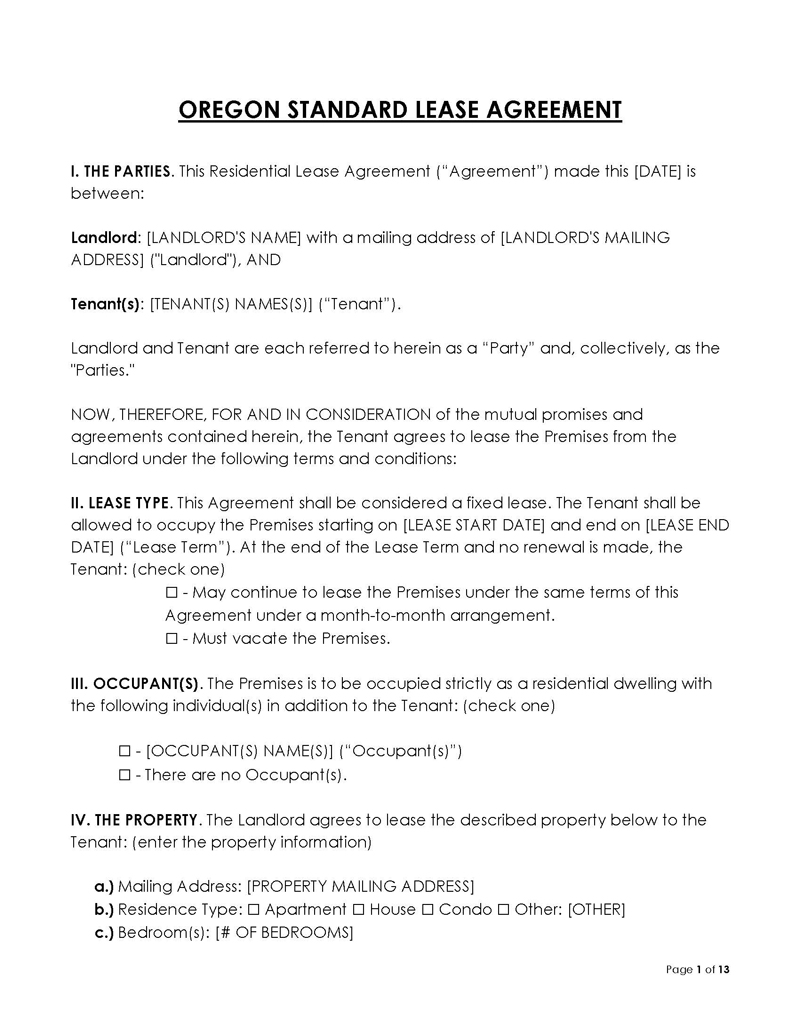
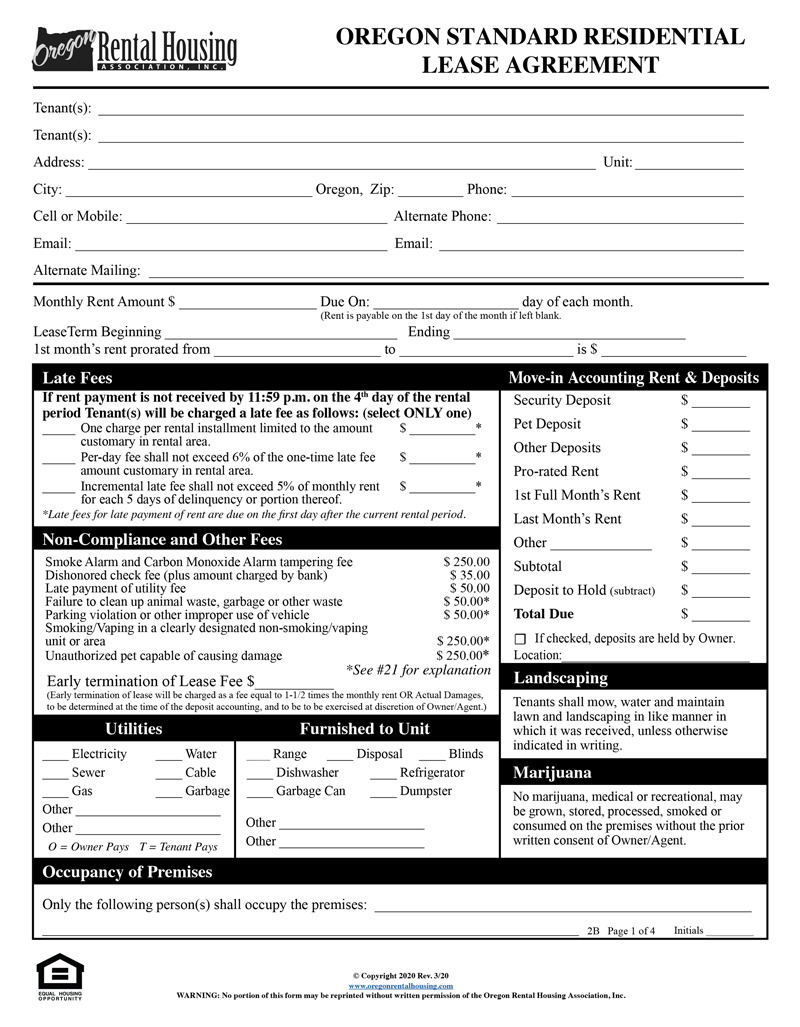
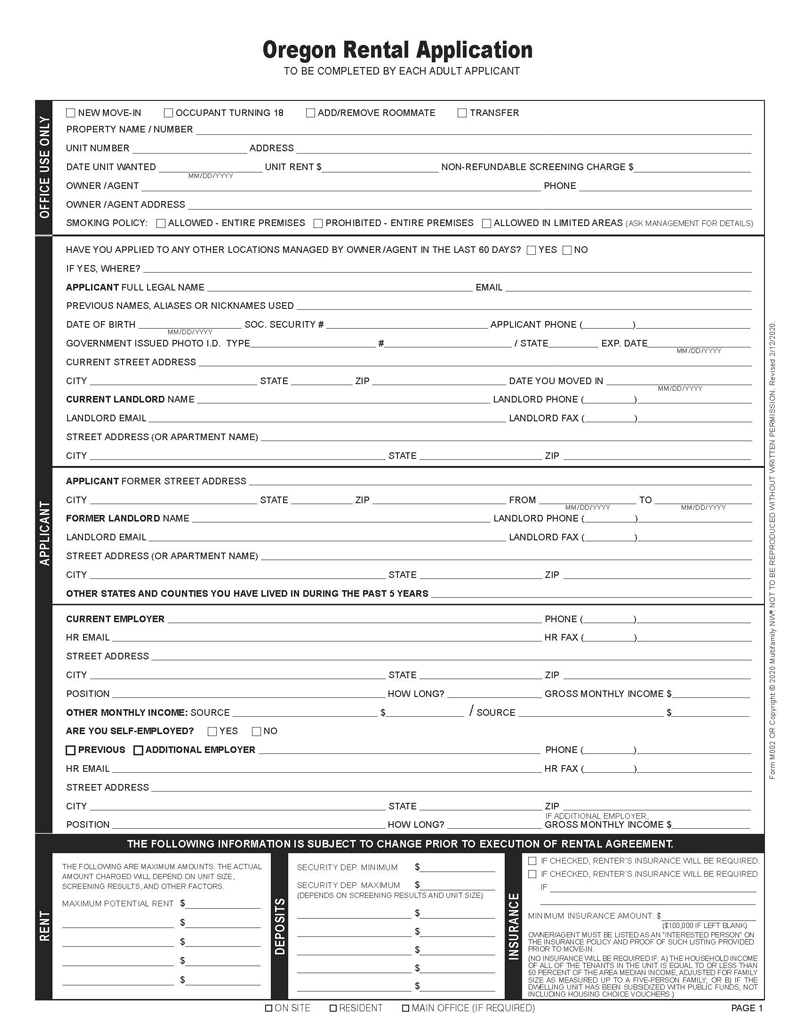
Oregon Landlord and Tenant Laws
Every lease agreement created is subject to certain state laws. As a landlord in Oregon, you can access information about landlord and tenant laws from Title 10, Chapter 90 (Residential Landlord & Tenant).
The state laws for Oregon’s rental agreements are listed below, which landlords must follow when creating this document.
Security deposit
A landlord in Oregon can charge any amount of a security deposit, as there is no statute that is against it. Also, there is no maximum amount of security deposit set for landlords. However, according to Or. Rev. Stat. § 90.300 (13), landlords are expected to return the security deposit to the tenant within 31 days after the lease has ended or been terminated.
Landlord right of entry
When it comes to a landlord’s right of entry, Oregon laws (Or. Rev. Stat. § 90.322) requires a landlord to provide a tenant with 24 hours’ notice before entering the residential property. This is in the case of an entry that is not an emergency.
Domestic violence
Landlords in Oregon are required by state law to verify any allegations of domestic violence made by tenants before releasing the tenant from the agreement. Therefore, they should ask the tenant(s) to fill out the form about the domestic violence claim. Also, a tenant must provide you with a 14 days written notice before terminating the lease in instances of domestic violence.
Further contact details
According to Or. Rev. Stat. § 90.305, the landlord needs to provide the name and address of the property owner. These contact details are important and must therefore appear in the agreement.
What Disclosures Are Required in a Lease Agreement in Oregon?
Some disclosures and addenda are required in a lease agreement. This information protects the landlord, from any potential liabilities relating to your rental property in the future.
Among them are the following:
Move-in checklist
As a landlord in Oregon, the § 30.01.087(D)(1) statute requires you to include a move-in checklist in your agreement. This only applies to the city of Portland. The tenant must have the report within seven days of the start date of the lease. If the tenant does not complete it, the landlord will be obligated to take digital photos, complete the checklist within seventeen (17) days, and return it to the tenant. This disclosure provides the tenant with information about all property damages prior to occupancy.
Disclosure of lead-based hazards
For lead-based hazards, this disclosure is mainly required for all buildings in Oregon built before 1978. These rental properties are likely to have lead-based paint, and you, as the landlord, must inform the tenants of this fact. In addition, you will have to complete a form that explains the presence of lead-based paints and highlights the hazards or risks brought about by these paints. This information appearing in your agreement is not only a federal law requirement but is also required by the Oregon laws in Title 42 U.S. Code § 4852(d).
Carbon monoxide alarms
If your rental unit contains any appliances that emit carbon monoxide, such as a heater, you must provide information about carbon monoxide alarms. The alarms must be fitted and set according to the State Fire Marshal’s office recommendation. In addition, as the landlord, you must change battery-operated alarms as required (90.316).
According to Or. Rev. Stat. § 90.316, the carbon monoxide and smoke detector information addendum must also be included in your rental agreement.
Disclosure of flood hazard area
According to Or. Rev. Stat. §90.228, you must inform your tenant if your rental property is in a 100-year flood plain. This refers to the low-lying ground that is close to a water body. If your property is in a flood plain, the tenant must be aware so that they can determine the proper evacuation protocol in case of a flood.
NSF (dishonored) check
For landlords in Oregon who charge fees for NSF (dishonored) checks, §30.701 statute requires you to include this information in the agreement. Remember that fees cannot exceed thirty-five dollars ($35).
Instructions for recycling
For Oregon rental buildings in the Urban Growth Boundary with four or more rental units, instructions for recycling must be disclosed in the agreement. You must inform your tenant about the best ways to recycle their waste and provide the necessary equipment.
Security deposit receipt
According to ORS 90.300, landlords in Oregon are required to give tenants a security deposit receipt. The landlord must also return the security deposit within 31 days of the tenancy’s termination.
Smoking policy
It is important for landlords in Oregon to provide a detailed Smoking Policy Guide in the agreement. This disclosure must have the tenant’s initials and signature, according to Section 90.220 of the Residential Landlord and Tenant Act in Oregon.
Other disclosures
Other disclosures required in the lease agreement include the following:
- As the landlord, you must notify tenants if anyone else is permitted to enter the rental property or act on your behalf.
- You must inform your tenants about any notices and pending lawsuits the property has, especially if you have a maximum of four residential units.
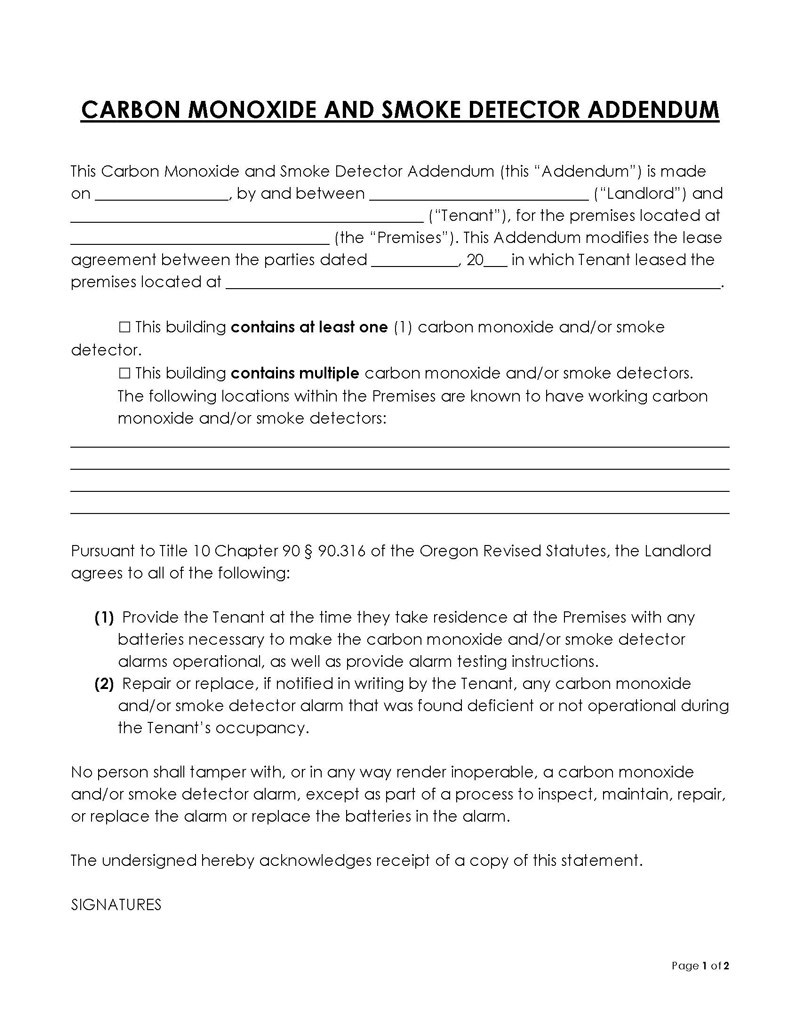
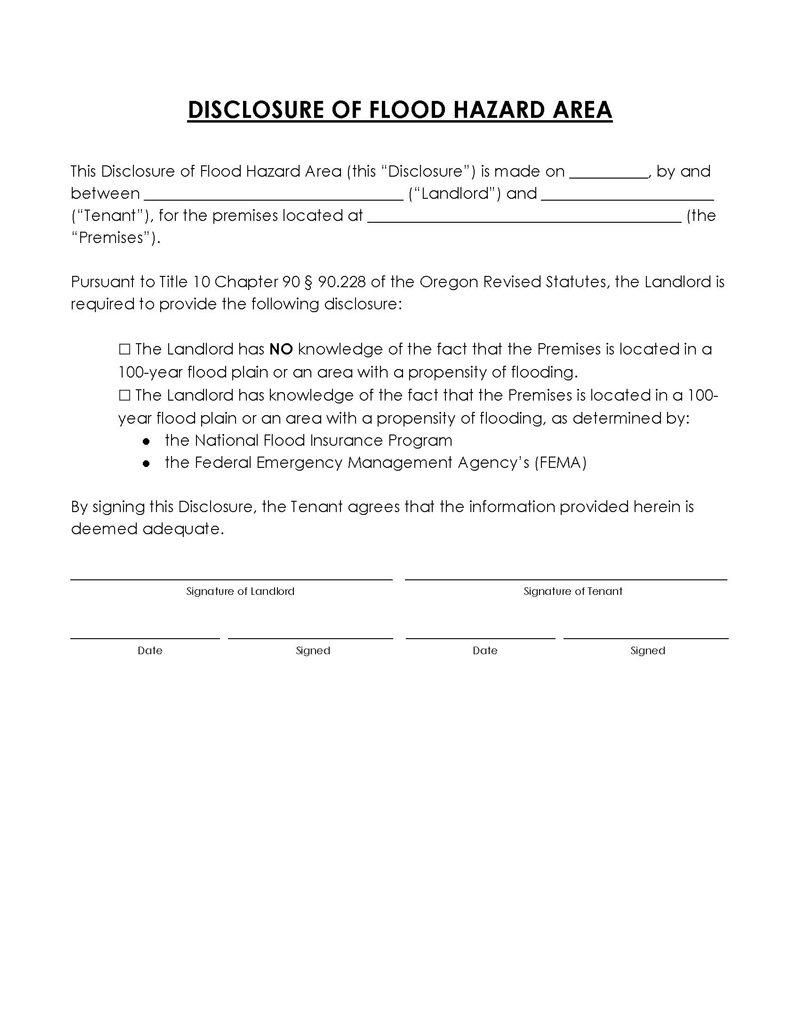
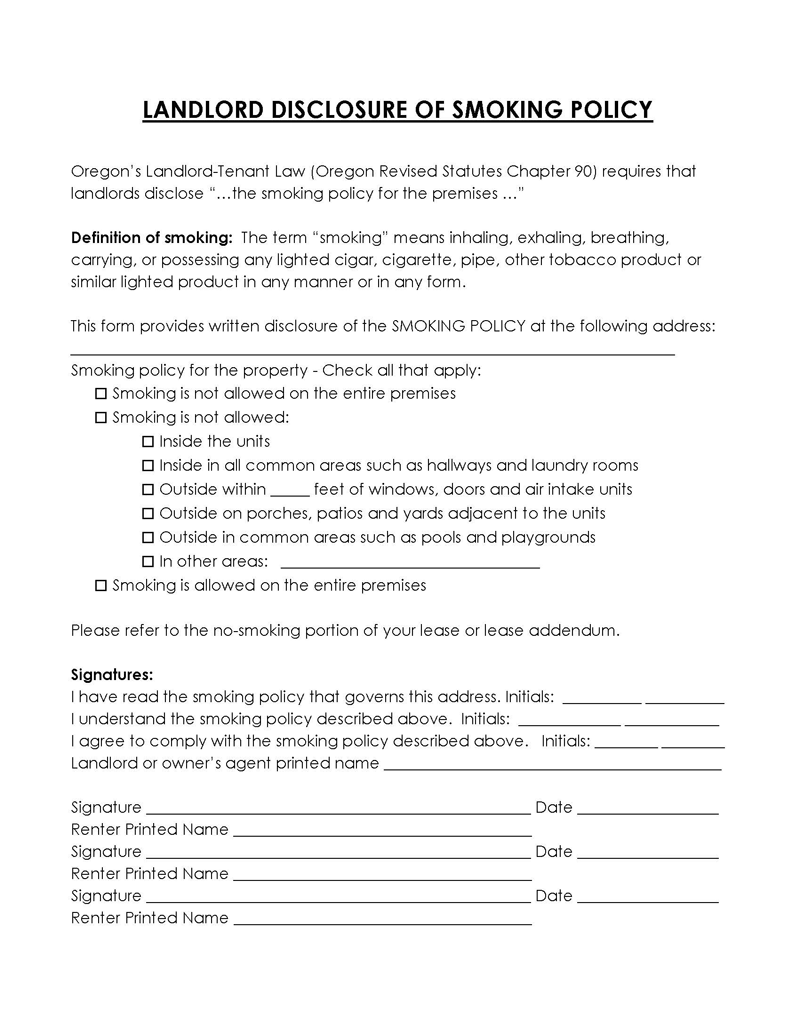
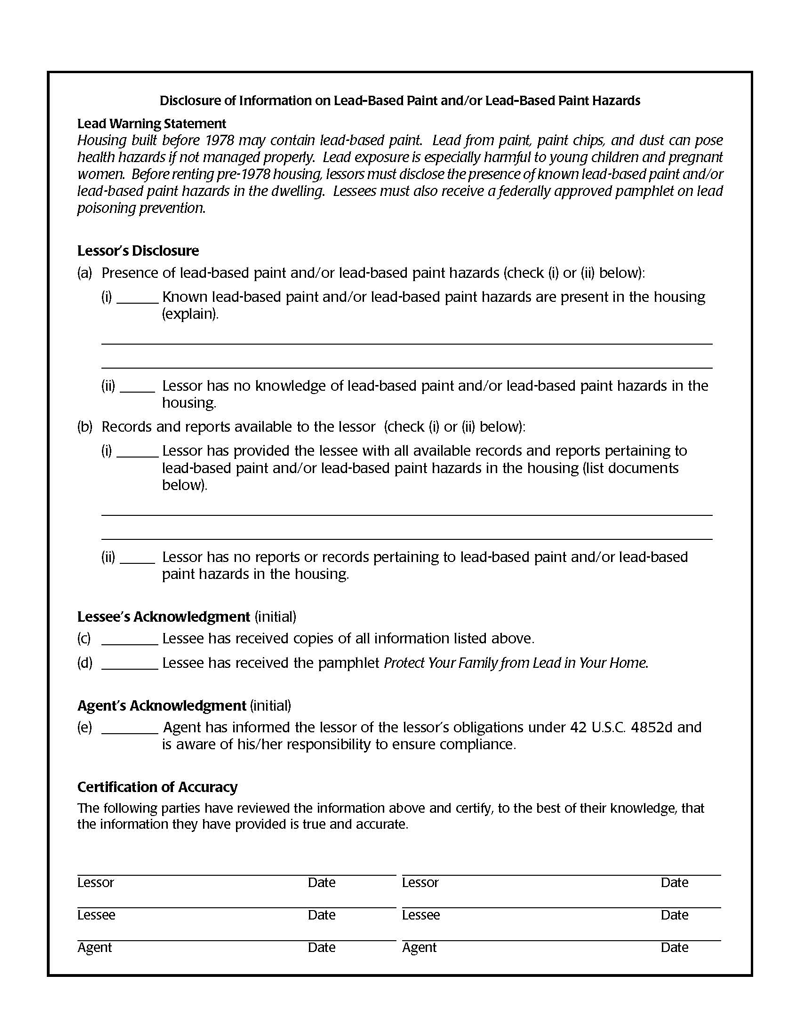
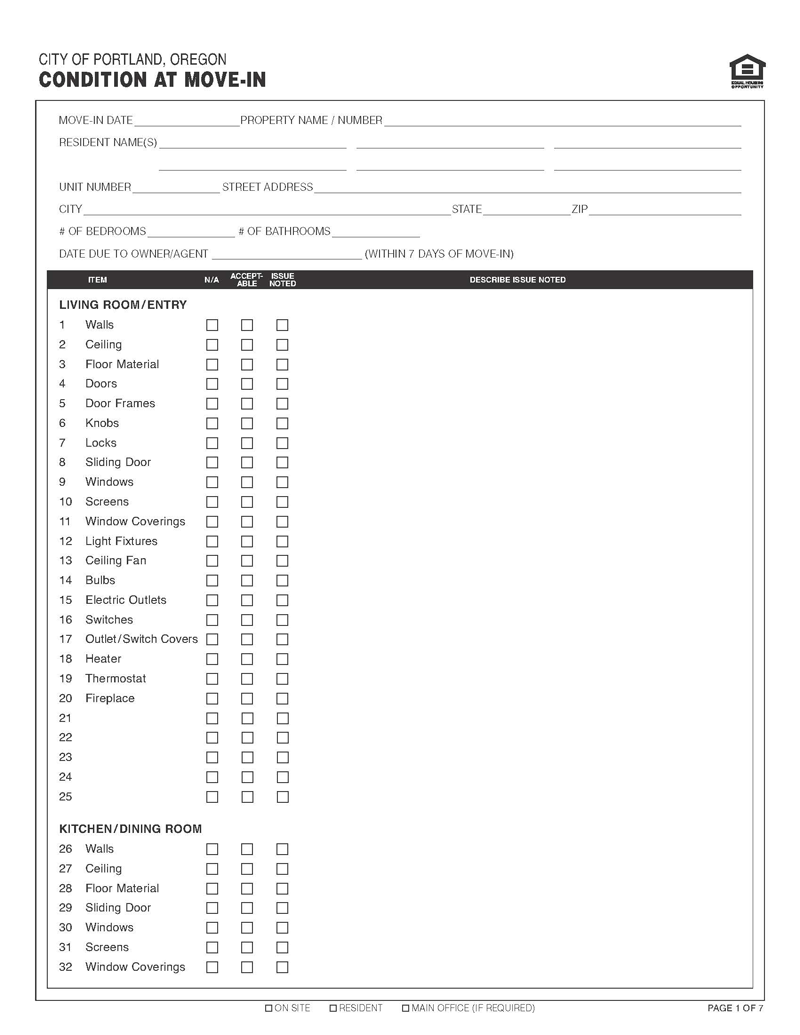
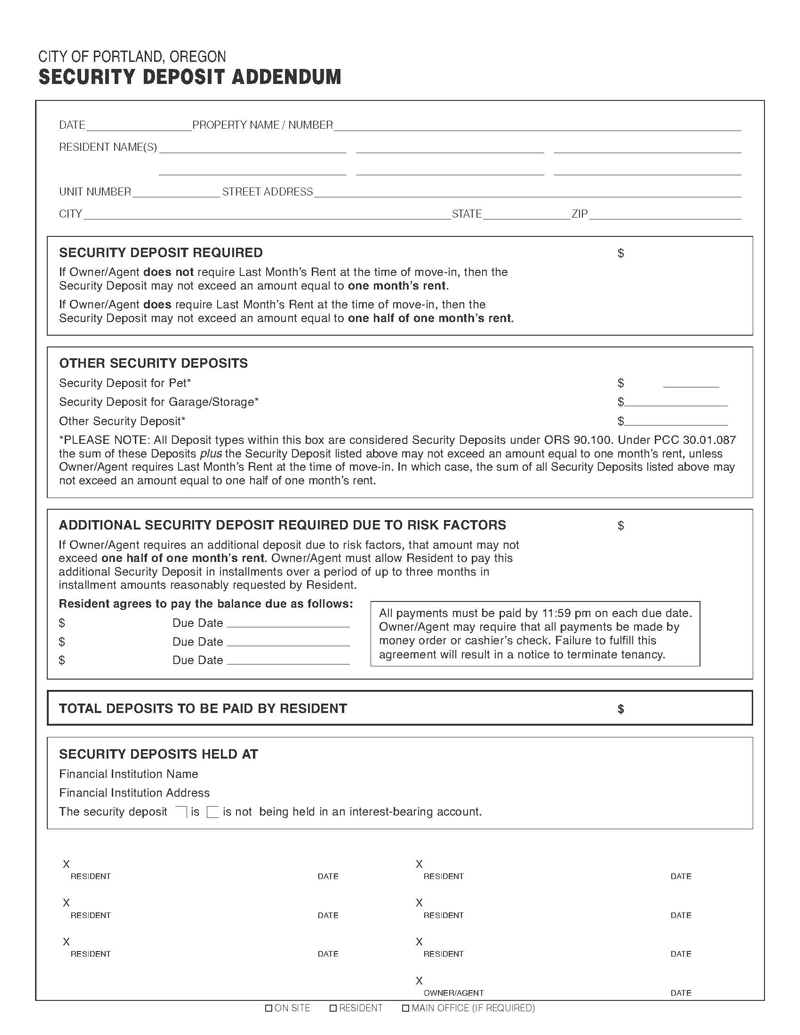
Oregon Lease Agreement Types
Depending on the type of tenancy, the following are the various types of rental lease agreements used in Oregon that you may need to prepare as a landlord.
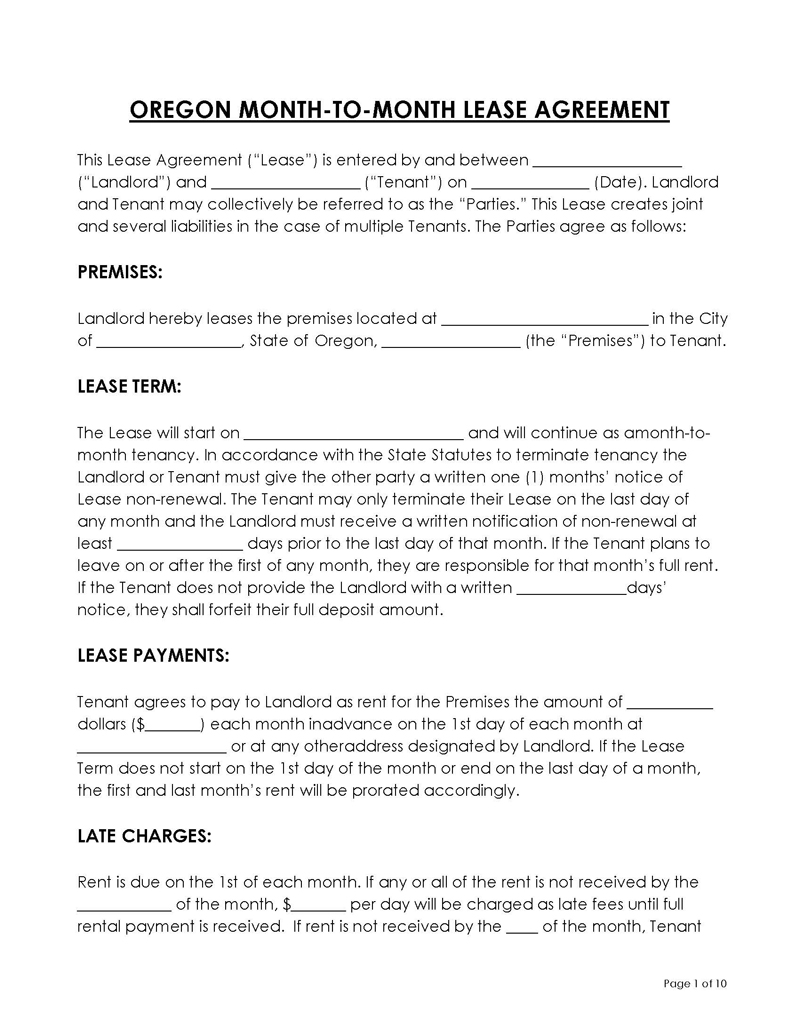
Oregon month-to-month rental agreement
The month-to-month rental agreement is a common type of lease agreement in Oregon. It is a contract between a landlord and a tenant where you will lease your property in exchange for receiving monthly rent from the tenant. This contract has no end date but can be terminated if the tenant provides you with 30 days’ notice.
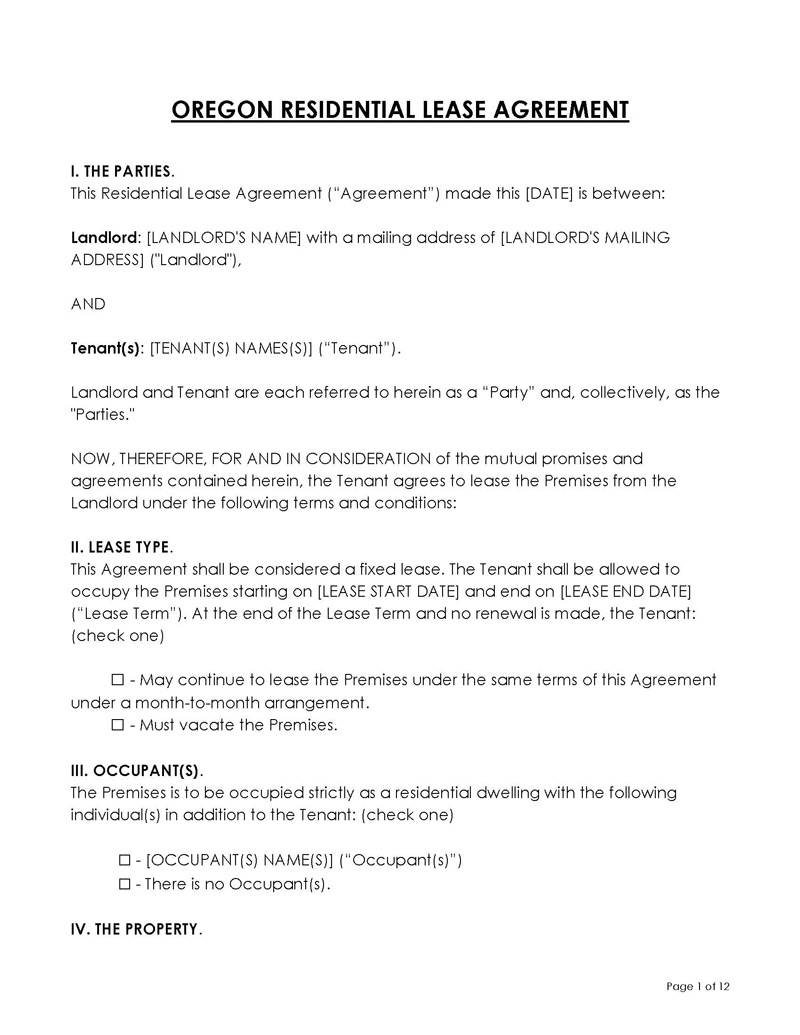
Oregon residential lease agreement
The standard residential lease agreement is a contract that usually lasts for one year between you and the tenant. It allows you to lease your property using a fixed-term lease. However, once the lease period is over, you can either renew the contract or change it to a month-to-month rental contract.
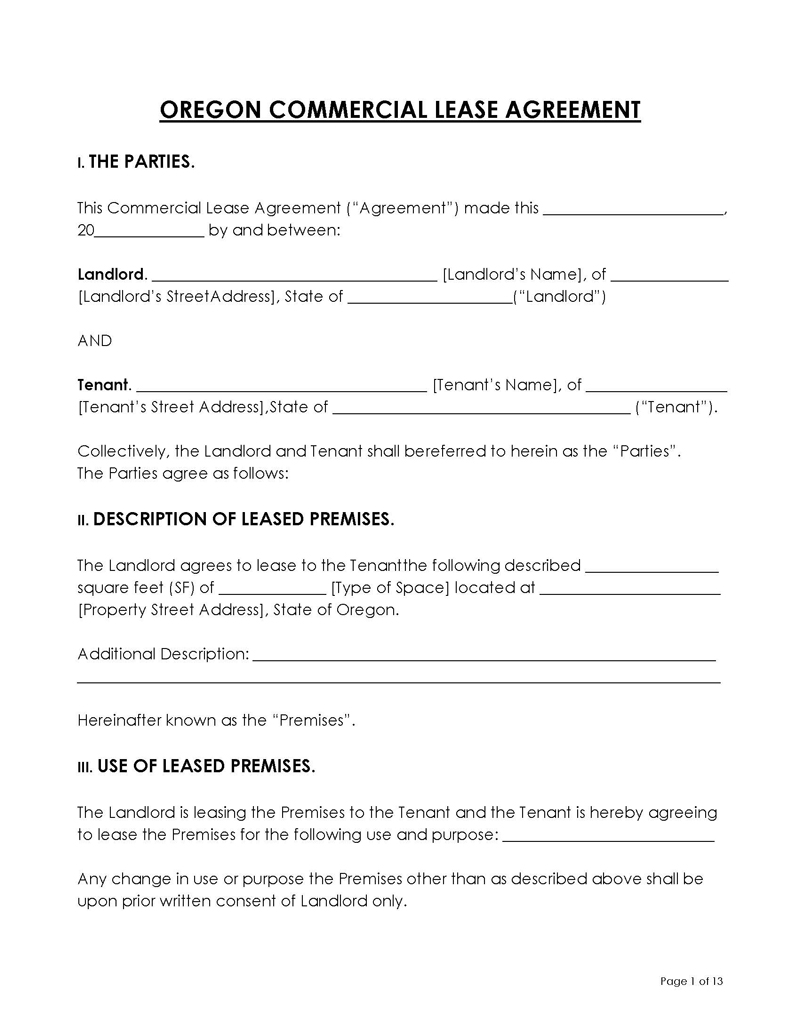
Oregon commercial lease agreement
A commercial lease agreement is a legally binding contract between a landlord and a tenant in which space is leased for commercial or business purposes. It is important to ask for professional advice while preparing this contract.
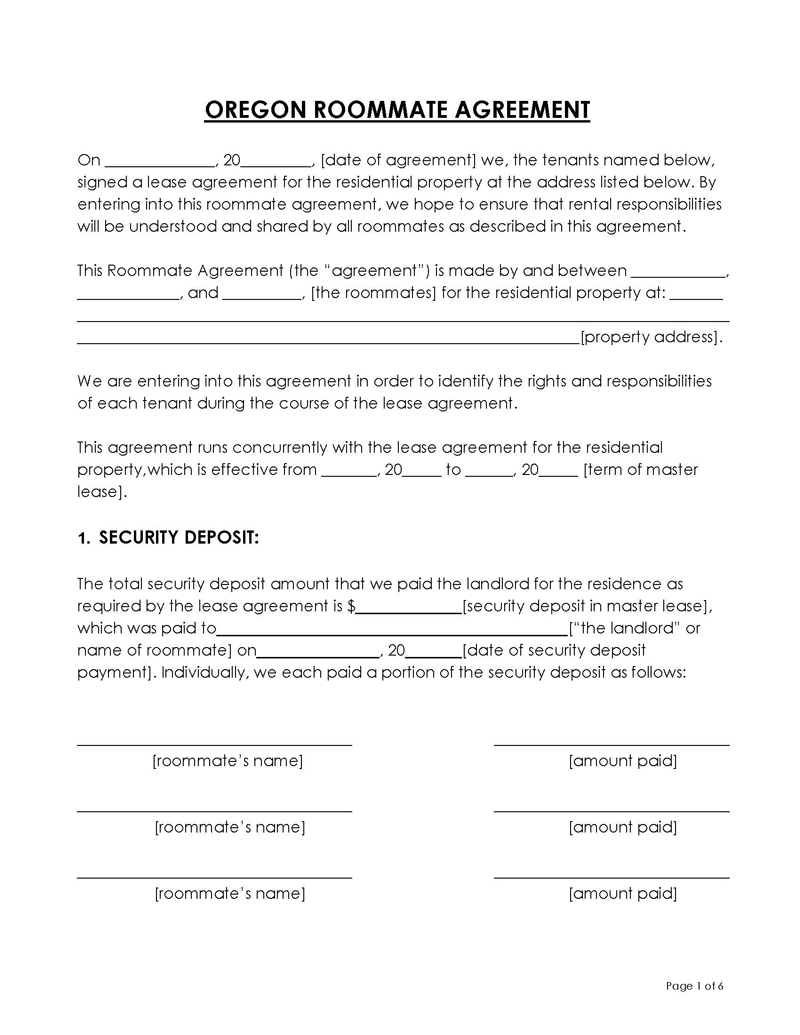
Oregon roommate agreement
In Oregon, a roommate agreement is a document used by roommates who want to document their roles and responsibilities in order to co-exist peacefully. This rental contract also highlights areas of the rental unit that are meant for the roommates and areas that are shared spaces.
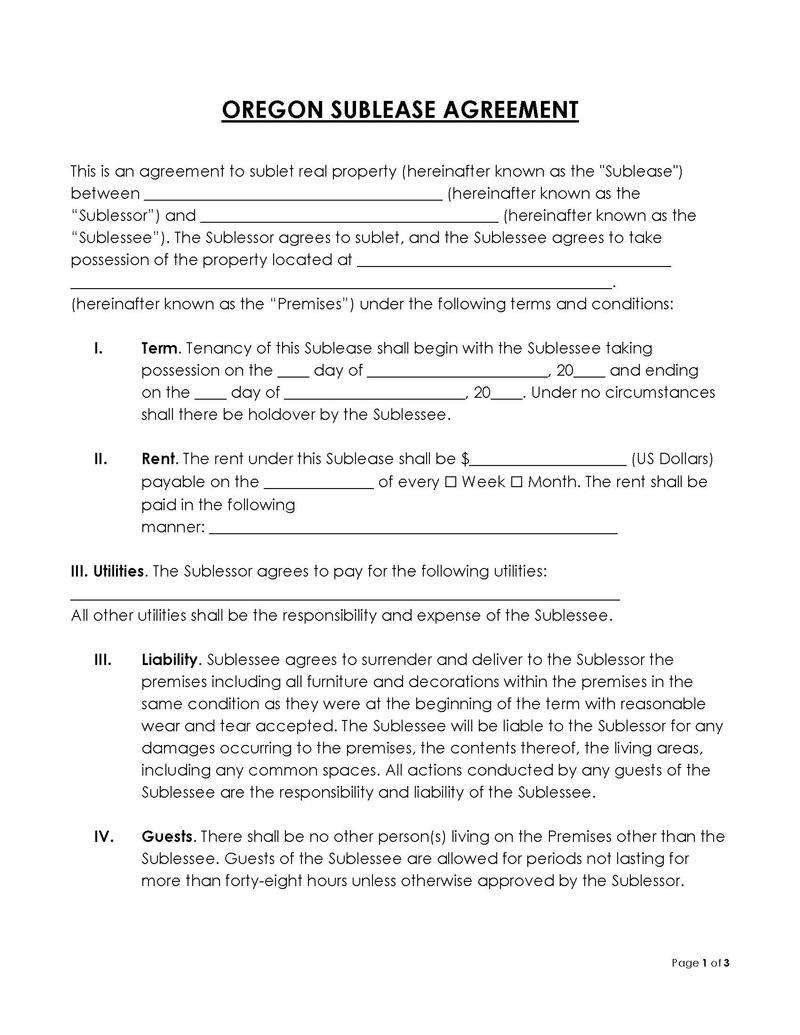
Oregon sublease agreement
A sublease agreement is a contract between a tenant on the master lease and a sub-lessee that you, as the landlord, have approved. The tenant will prepare this agreement to sublet the rental property for a lease period that does not go beyond the period mentioned in the master lease.
Conclusion
A lease agreement in Oregon is an important and legally binding contract that outlines the relationship between the landlord and the tenant. The lease agreement must contain all of the contract’s required disclosures as well as the terms and conditions of the lease. In addition, ensure that the lease agreement is signed by both parties to make it legally valid and enforceable in Oregon.












